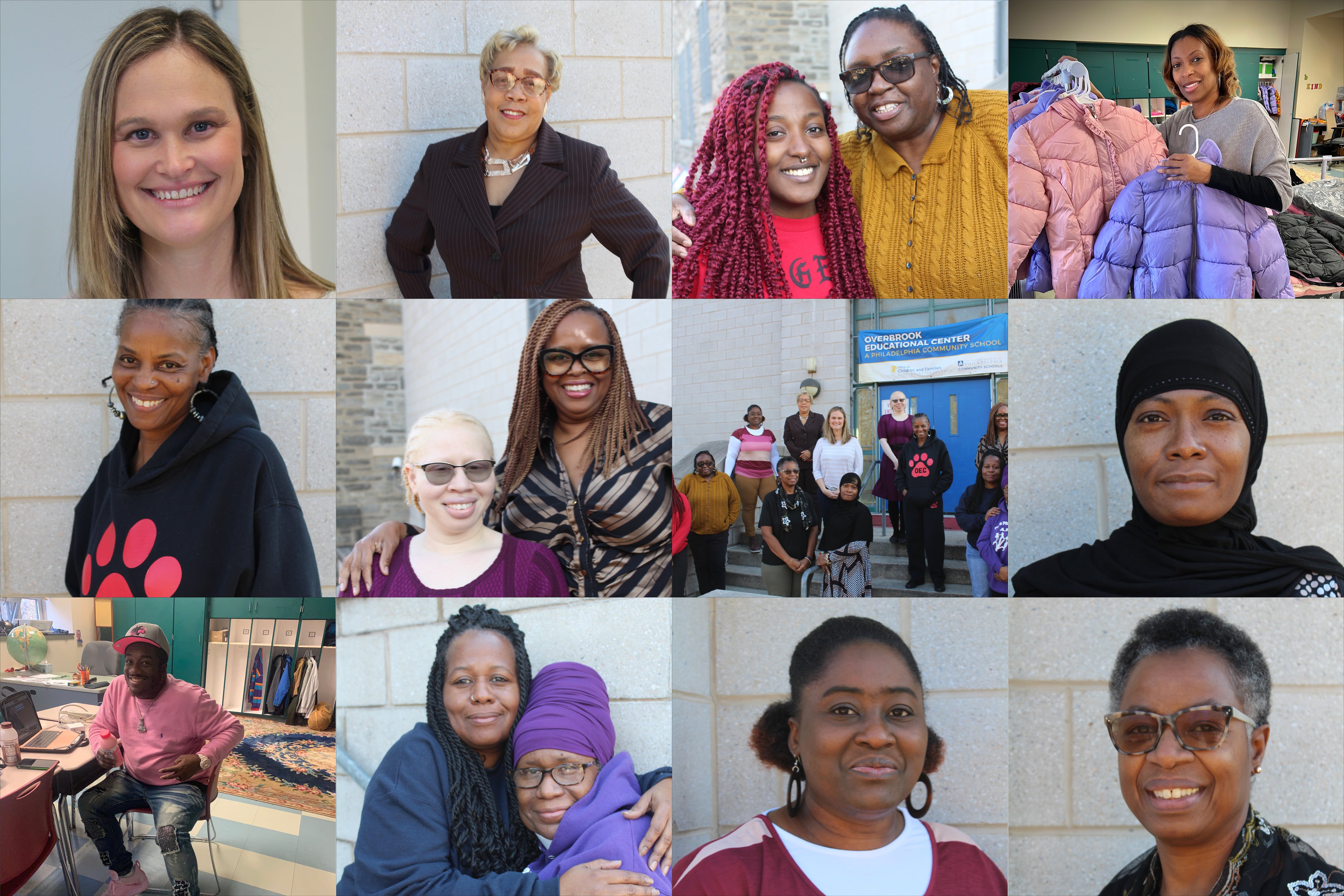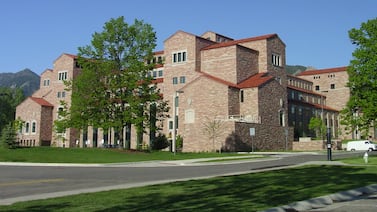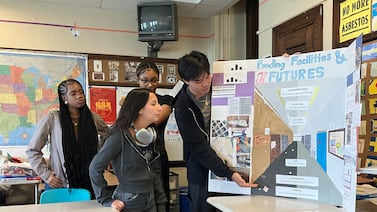Kimberly Singleton was the parent of a student at Overbrook Educational Center in West Philadelphia when she lost her job at a billing company. Already an active volunteer at the school, she jumped at the chance when she saw an ad in the school newsletter for a classroom assistant.
Singleton got the job in February 2020 — an “interesting” time to start, she said, given the impending COVID pandemic — and when the school needed a substitute teacher, she suggested her daughter Kassidy apply. Now both of them work at the school, which Kassidy’s brother attended.
The Singletons are two of 11 staffers at the educational center with family ties to the school, where nearly a third of students are blind or visually impaired, according to its website. While other Philadelphia schools have family members working side by side, it’s “definitely unique” to have so many, district spokeswoman Marissa Orbanek said. And it’s not just a nice statistic. Principal Meredith Foote says the family culture, in which children see friends’ parents as teachers, staffers, and volunteers, “makes everything better.”
“When your child goes there or you’ve had a child go there, you treat everyone as if they were your child,” Foote told Chalkbeat. “It makes children want to come to school, and it makes adults want to be there for each other.”
“Family members want to come back, and we want to hire people who are invested in the children and in the community,” Foote told Chalkbeat.
The center started in the 1970s as a partnership with Overbrook School for the Blind, and has been accepting non-visually impaired students since the early 1990s, Foote said. The school accepts students via lottery, and there’s currently a waiting list, she said. The school boasts a high attendance rate, with 86% of students attending 95% or more school days, according to Foote.
The staffers said it’s the sense of family and community at the school, which has 278 students in grades K-8, that keeps them motivated. As a classroom assistant, Kimberly Singleton said, she encourages parents to stay involved.
“There’s a family atmosphere,” she said. “That’s what I always loved.”
A school’s welcoming policy for the community
School secretary Bonita Liles and her daughter, Love, are another mother-daughter pair at OEC.
Bonita Lyles was a secretary at a school in North Philadelphia when she started volunteering at OEC’s office. Lyles developed close relationships with school leaders and when the opportunity for a full-time position at the center came up, she applied and got the job.
Love Liles, a former OEC student herself, helps sixth to eighth graders with life skills as an aide, and is working toward her education degree. Love Liles is visually impaired herself, Foote said, so “they see someone they can look up to as a role model.” She said she plans to hire Love once she gets her degree.
“It’s wonderful working with her,” Bonita Liles said of her daughter. “I know where she is, and she knows where I am.”
Colleagues’ praise for Love Liles’ skills also brings her joy, she said. “I like hearing the positive feedback I get when they find out she’s my daughter,” she said. “She’s quiet with the kids, but stern. It warms my heart to know she’s thriving here.”
Love Liles said she appreciates the “small community” at OEC. “It’s a lot easier to get to know everyone,” she said. The atmosphere also fosters teamwork when there’s a big project coming up and helps with conflict resolution, she said.
“We’re really close with the community as well,” Bonita Liles said. Community connections “help the school a lot,” she said.
OEC climate staffer and parent Ellis Hamiel echoed that theme. “It’s almost like a small family,” he said. “We all work together to make sure the school’s running smoothly no matter what.”
Hamiel has three children at the school, and “they love it,” he said. One benefit of working at the school his children attend is that he can easily talk to teachers and keep up with lesson plans, he said.
Hamiel is active in Leaders of Tomorrow, one of several activities the school offers. He recruits male role models to come to the school and talk to boys about their experiences and how school helped them get where they are. His wife does the same for girls, he said.
“These people stay in contact with the kids,” Hamiel said. “That’s what’s keeping them focused on school. If they fail at something, we don’t turn our backs; we find ways to tutor them.”
The school has an “open-door” policy, and encourages family and community members to volunteer, Foote said. “If parents want to check in on their children, or a coach in the neighborhood wants to come in and help out, we do all of the volunteer paperwork necessary, but we’re encouraging as many extra hands as possible, because we always need help,” she said.
Meanwhile, students at the center get a kick out of seeing the mother-daughter Singleton duo at school, they said.
Kassidy said she’s asked questions like whether her mother did her hair that day. “I’m like, ‘No, I’m grown,’” she said. “I don’t think they understand: You still have parents when you’re grown.”






